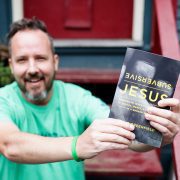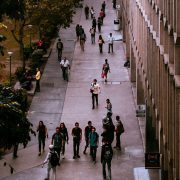ODJ: the least of these
November 30, 2015
READ: Deuteronomy 24:14-22
When you [helped] one of the least of these my brothers and sisters, you were doing it to me! (Matthew 25:40).
On a recent trip into the city I noticed people stationed on several street corners. Their clean, coordinated T-shirts announced a common goal—to help end homelessness. One of them approached me offering information. As I paused there on the street, I noticed a homeless man standing just a few feet away. I saw his scruffy outfit and downcast look. Although the advocates for the homeless were doing a good thing, they seemed oblivious to the man. No one spoke to him or offered him food.
There are many noble organisations that exist to make the world a better place. There’s a difference between campaigning for a cause, however, and showing genuine, compassionate care for people God places in our path (James 2:15-16).
In the Old Testament, God encouraged the Israelites to be generous to the poor (Deuteronomy 15:7). Later He said, “When you are harvesting your crops and forget to bring in a bundle of grain. . . . leave it for the foreigners, orphans and widows” (24:19). If they followed God’s lead, a blessing would result. But they weren’t supposed to aid the needy just to get good stuff from God. They were to help because they once needed help themselves. As slaves in Egypt, they had been trapped in a place of disadvantage (v.22).
The Bible says that God is a “tower of refuge” for the underprivileged (Isaiah 25:4). And He considers it a personal favour when we assist poor people. Jesus said, “I was hungry, and you fed me. I was thirsty, and you gave me a drink. I was a stranger, and you invited me into your home. . . . When you [helped] the least of these my brothers and sisters, you were doing it to me!” (Matthew 25:35,40). As we serve others, we’re serving our Saviour too.
—Jennifer Benson Schuldt
365-day-plan: Ephesians 2:1-22
Read Luke 14:12-14 to see how Jesus viewed our compassionate care for less fortunate people. Look up James 2:1-6 to learn how actions reveal attitudes towards the rich and the poor.
How has God met your needs? Does this motivate you to reach out to other people? Why or why not?






